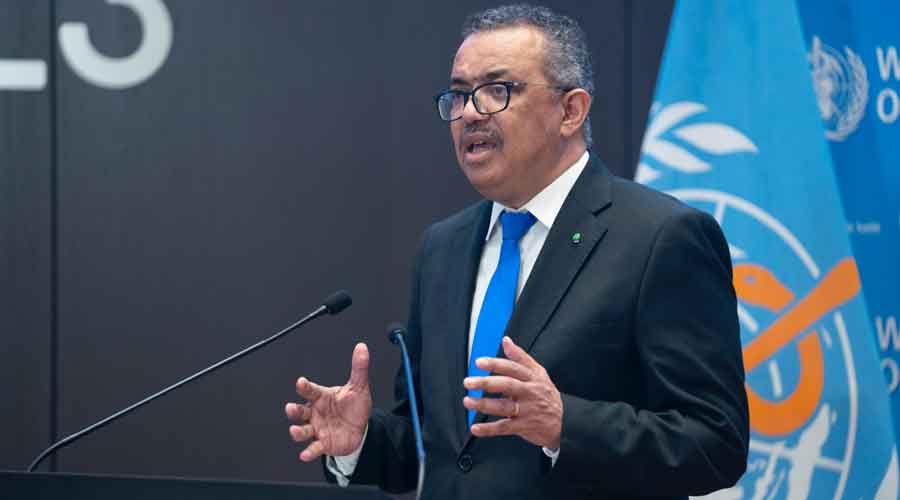
WHO: Omicron’s spread could end ‘emergency phase’ of pandemic
Don't Miss
Hans Kluge, the director for the European region, warned that it was too early for nations to drop their guard
Marc Santora | TT | Geneva | 25.01.22 : The pandemic that has convulsed the world for more than two years is entering a “new phase” globally, and the rapid spread of the omicron variant of the coronavirus offers “plausible hope” for a return to normality in the months ahead, the World Health Organisation’s top official in Europe said in a statement released Monday.
Hans Kluge, the director for the WHO’s European region, warned that it was too early for nations to drop their guard, but said that between vaccination and natural immunity through infection, “omicron offers plausible hope for stabilisation and normalisation”.
His comments echoed the optimism of other leading public health officials around the world, including Anthony S. Fauci, US President Joe Biden’s top medical adviser for the coronavirus.
Fauci said on Sunday that while there would be pain in the weeks ahead, especially as omicron moves through the unvaccinated, the hope was that the continued spread of omicron would not disrupt society to the same degree as other variants of the coronavirus have done over the past two years.
Tedros Adhanom Ghebreyesus, the head of the WHO, said that it remained the collective responsibility of the world to end the pandemic.
“There are different scenarios for how the pandemic could play out and how the acute phase could end. But it’s dangerous to assume that omicron will be the last variant or that we are in the endgame,” he said on Monday at an executive board meeting of the global health organisation. “On the contrary, globally, the conditions are ideal for more variants to emerge.”
Given how the virus has offered new surprises and challenges throughout the pandemic, Kluge also offered a mix of caution and optimism.
“The pandemic is far from over, but I am hopeful we can end the emergency phase in 2022 and address other health threats that urgently require our attention,” Kluge wrote. “Backlogs and waiting lists have grown, essential health services have been disrupted, and plans and preparations for climate-related health stresses and shocks have been put on hold.”
The WHO’s European region encompasses more than just the European Union. It includes 53 countries, covering a vast geographical region from the Atlantic to the Pacific. Omicron has been spreading across the area from the west to the east, into countries where vaccination rates are lower.
“While omicron appears to cause much less severe disease than delta, we are still seeing a rapid rise in hospitalisations, due to the sheer number of infections,” Kluge wrote. “Fortunately, hospitalisations with omicron result much less frequently in ICU admission. As predicted, most people needing intensive care across the region are unvaccinated.”
He urged nations to step up vaccination drives.
“Too many people who need the vaccine remain unvaccinated,” he said. “This is helping to drive transmission, prolonging the pandemic and increasing the likelihood of new variants.”
Two years ago today — January 24, 2020 — the first case of coronavirus in Europe was detected in France. Kluge took note of the toll the virus had wrought in the 732 days that have followed.
Some 1.7 million deaths in the region have been attributed to Covid — which amounts to 99 people dying every hour of every day, according to the WHO’s estimates.
In addition, more than four million people have been pushed into poverty in the region — meaning they earn less than $5.50 a day. Frontline health workers have experienced significant levels of anxiety, and the WHO cited one study showing that about 40 per cent of the staff working in intensive care units met the clinical threshold for post-traumatic stress disorder.
“This pandemic, like all other pandemics before it, will end, but it is far too early to relax,” Kluge said. He added that it was “almost a given that new Covid-19 variants will emerge and return”.
But the world was in a much better place to deal with what might come, he noted.
“I believe that a new wave could no longer require the return to pandemic-era population-wide lockdowns or similar measures,” he said.
New York Times News Service




0 Response to " WHO: Omicron’s spread could end ‘emergency phase’ of pandemic"
Post a Comment
Disclaimer Note:
The views expressed in the articles published here are solely those of the author and do not necessarily reflect the official policy, position, or perspective of Kalimpong News or KalimNews. Kalimpong News and KalimNews disclaim all liability for the published or posted articles, news, and information and assume no responsibility for the accuracy or validity of the content.
Kalimpong News is a non-profit online news platform managed by KalimNews and operated under the Kalimpong Press Club.
Comment Policy:
We encourage respectful and constructive discussions. Please ensure decency while commenting and register with your email ID to participate.
Note: only a member of this blog may post a comment.